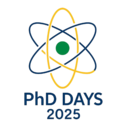Speaker
Description
In the last decade, several advances in theoretical and algorithmic methods, together with the increase of computational resources, have made Lattice QCD a key tool at the precision frontier of Particle Physics, providing accurate and systematically improvable predictions for observables measured with ever-increasing experimental accuracy. We present the results of a first-principles theoretical study of hadronic observables of phenomenological relevance, such as the $R$–ratio in $e^{+}e^{-}\to$ hadrons, the inclusive semileptonic decays of the $D_s$ meson, and the hadronic vacuum polarization contribution to the muon anomalous magnetic moment $g_{\mu}-2$. Strongly entangled with these studies, we discuss the development and performance optimization of Lattice QCD codes, which are pivotal for the efficient use of modern pre-exascale and exascale supercomputers.

